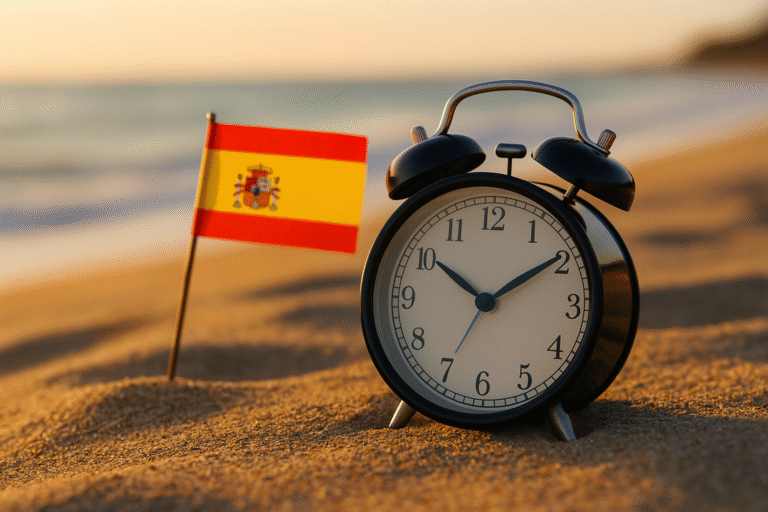On the night of October 25-26, 2025, Spain will traditionally switch its clocks to winter time. At 3:00 a.m., the clocks will be set back one hour – meaning it will be 2:00 a.m. on the mainland, and from 2:00 a.m. to 1:00 a.m. on the Canary Islands.
This means that on the last Sunday of October, Spaniards will sleep an hour longer, as the night will become a little longer.
Why do they change the clocks in Spain?
Daylight saving time (DST) has been in effect in all European Union countries for decades. It was introduced to save electricity and make better use of natural light at different times of the year.
However, in recent years, there has been increasing debate about reversing the clock changes. Many people believe that this process negatively affects sleep, productivity, and well-being, especially in the first few days after the time change.
The European Commission even proposed to abandon the transition, but EU member states have not yet reached a common decision. Therefore, for now, Spain continues to change its clocks twice a year - in spring and autumn.
When do they change the clocks in Spain in 2025?
The following time changes are planned for 2025:
- For daylight saving time - on the night of March 29 to 30, 2025, when the clocks are moved from 2:00 to 3:00.
- For winter time - on the night of October 25-26, 2025, when the clocks are turned back one hour.
So, at the end of October 2025, Spain will switch to winter time and will live by it until March 2026.
Time difference between Spain and Ukraine
After the clock change, the difference between Ukraine and Spain will be one hour.
- When it's 10:00 in Ukraine, it's 9:00 in Spain.
- In the summer, when daylight saving time is in effect in both countries, the time coincides.
This is important to consider when planning trips, booking tickets, meeting online, or communicating with family.
How to adapt to winter time
Changing the clocks may seem like a small thing, but it can have an impact on your body. Here are some tips to help you adapt more easily:
- Go to bed a little earlier a few days before the time change.
- Spend more time in daylight - this will help you adapt to the new rhythm faster.
- Drink more water and less coffee in the first few days after the transition.
- Don't plan important things immediately after the time change - give your body a day or two to adapt.
Are there plans to cancel the clock change in Spain?
The issue remains open. Spain, like most EU countries, has not yet made a final decision. The government periodically raises this topic, but no concrete changes have yet been made.
Some experts suggest keeping permanent daylight saving time so that evenings are longer and brighter, while others advocate permanent winter time, which is closer to the natural rhythm of the sun.
Meanwhile, Spaniards, like Ukrainians, continue to live according to two time regimes – summer and winter.
Result
So, on the night of October 25-26, 2025, Spain switches to winter time.
Don't forget to set your clocks back one hour so you don't end up late for work or a meeting!
Changing the time in Spain is not only a technical detail, but also a reason to wonder whether this practice is still relevant in the 21st century.

